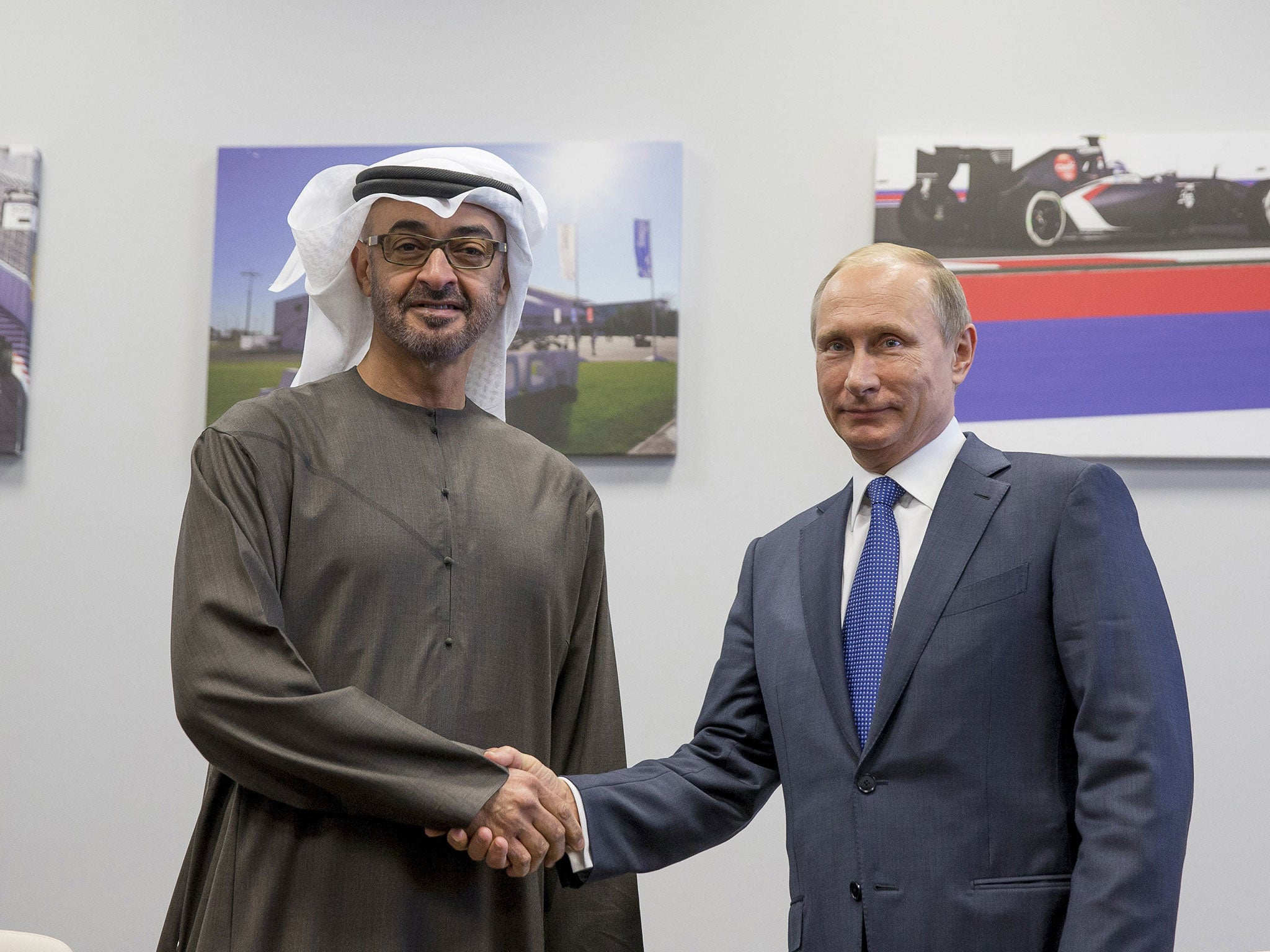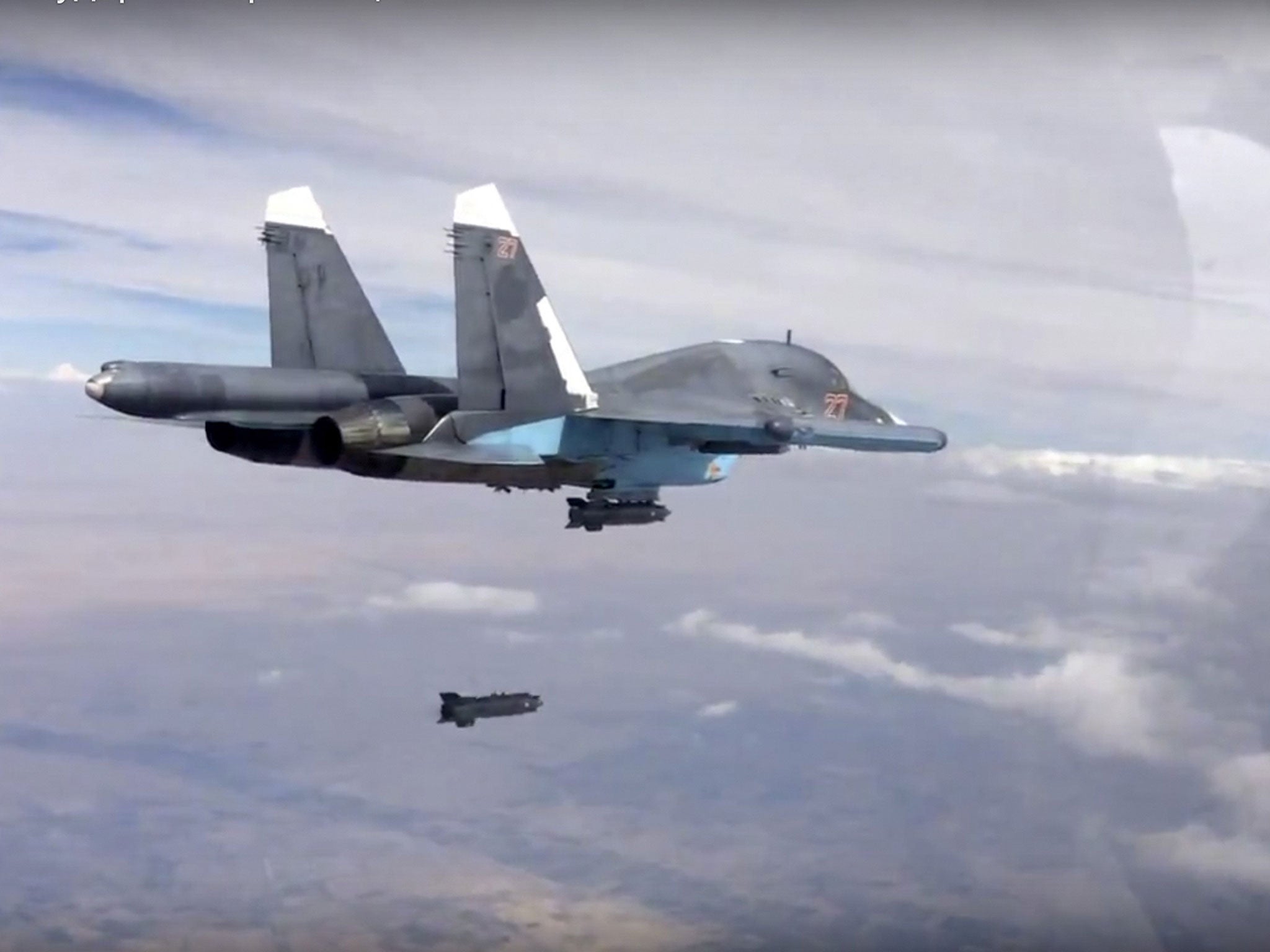Syria crisis: Vladimir Putin insists Russia is only bombing Isis as critics say he is 'the anti-Christ for Sunni Muslims'
Russia has been accused of supporting the Syrian president, Bashar al-Assad, at all costs - even if that means launching air strikes on the Western-backed rebel groups fighting Isis on the ground

Your support helps us to tell the story
From reproductive rights to climate change to Big Tech, The Independent is on the ground when the story is developing. Whether it's investigating the financials of Elon Musk's pro-Trump PAC or producing our latest documentary, 'The A Word', which shines a light on the American women fighting for reproductive rights, we know how important it is to parse out the facts from the messaging.
At such a critical moment in US history, we need reporters on the ground. Your donation allows us to keep sending journalists to speak to both sides of the story.
The Independent is trusted by Americans across the entire political spectrum. And unlike many other quality news outlets, we choose not to lock Americans out of our reporting and analysis with paywalls. We believe quality journalism should be available to everyone, paid for by those who can afford it.
Your support makes all the difference.Vladimir Putin has defended scores of Russian air strikes carried out over the weekend in Syria, insisting his country’s only goal is to combat the “international terrorists” of Isis.
Forces loyal to the Syrian president, Bashar al-Assad, reported significant territorial gains on Sunday at the expense of US-backed moderate rebels. The government has launched a wide-ranging ground offensive since Russia began offering air support on 30 September.
On Sunday the main Western-backed opposition group, the Syrian National Coalition, criticised “Russian aggression” as damaging to efforts to end the crisis.
Speaking in an interview with Russian state TV, Mr Putin said Moscow wanted to strengthen Assad’s position – as a means to reaching a political compromise.

“When a division of international terrorists stands near the capital, then there is probably little desire for the Syrian government to negotiate, most likely feeling itself under siege in its own capital,” he said.
Russia said it carried out 64 air strikes in Syria on Saturday alone, and described all the attacks as targeting Isis – despite the fact that some of the areas mentioned were not thought to be held by the militant group.
Meanwhile, Putin took the opportunity while watching the Russian Grand Prix in Sochi on Sunday to meet with the powerful defence minister of Saudi Arabia, the king’s son Mohammed bin Salman. He also met with Abu Dhabi's Crown Prince, Sheikh Mohammed bin Zayed Al Nahyan, on the fringes of the race.
It represented the boldest move so far to reach out to Assad’s fiercest critics since Russia began air strikes in the Syrian government’s defence.
After the meeting, Foreign Minister Sergei Lavrov said Moscow had sought to assuage Riyadh's concerns. Both sides shared the objective of preventing a “terrorist caliphate” from taking root in Syria, he said.
Despite those efforts, the former Nato secretary general Jaap de Hoop Scheffer said Russia’s involvement in Syria was fast turning Mr Putin into “the anti-Christ” for Sunni Muslims across the Middle East.
Mr de Hoop Scheffer told Channel 4 News he was worried by Moscow’s involvement in the Middle East in part because he wasn’t certain Mr Putin was “100 per cent rational”.
He said: “When I see Putin bear hunting, or diving for a vase which apparently somebody had put there the day before or is playing ice-hockey, then I tend to think is he 100 or 95 per cent rational? If he's 95 per cent rational, we have a problem.
Mr de Hoop Scheffer admitted that finding a solution in Syria without Russia was now an “impossibility”, and that as a diplomat he was willing to “talk to anyone – even Assad whose hands are dripping with blood”.
But he added: “I think Putin will eventually fall on his own sword. He will be - to put it in Christian terms - the anti-Christ for every single Sunni in the Middle East.
“He's defending Bashar al-Assad, he is joining hands with Hezbollah, joining hands with Iran and potentially joining hands with a Shia government in Baghdad.
“I would be very nervous if I were Putin, that in the long run, I would be confronted with very virulent Sunni extremism.”
Join our commenting forum
Join thought-provoking conversations, follow other Independent readers and see their replies
Comments